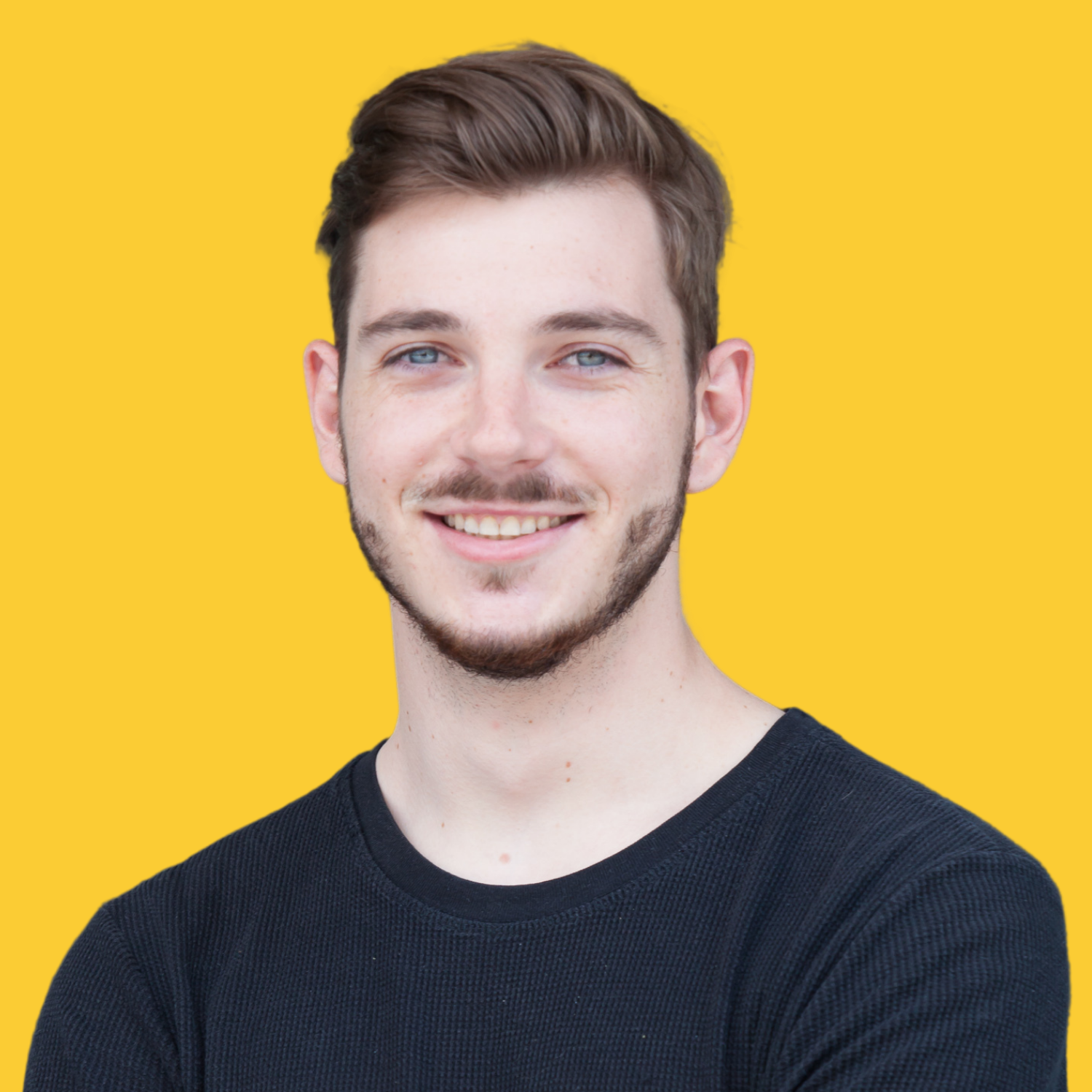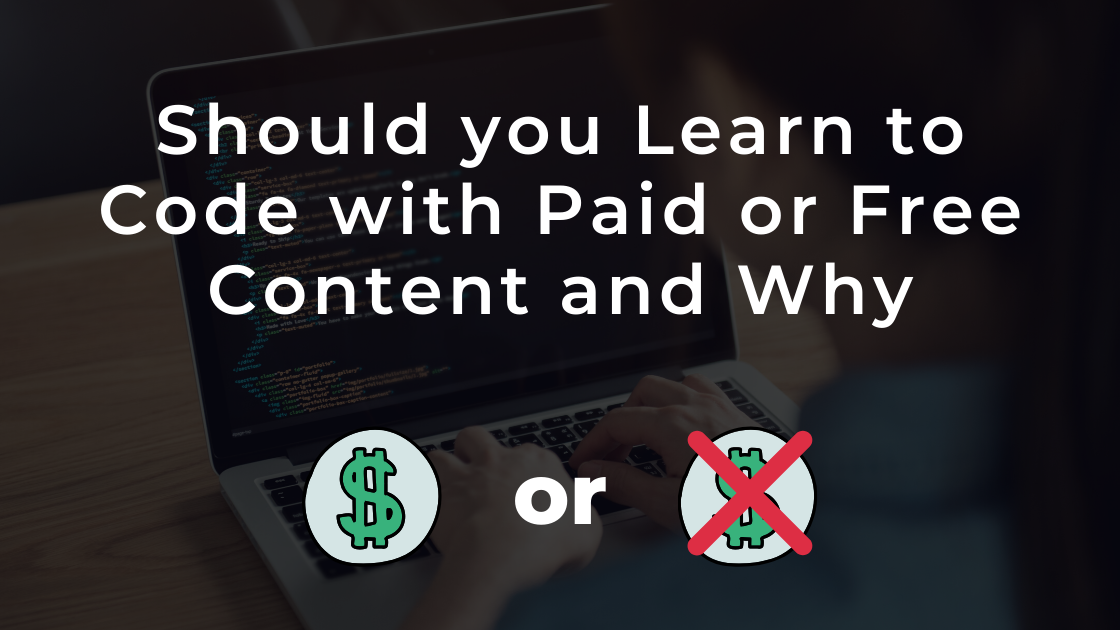As more and more people use computers, the number of resources out there for learning about them has increased a lot, too. When you start programming, it isn't straightforward to choose between free or paid content. I've been thinking, gathering arguments, and creating examples to help you make your choice.
What Should You Choose - Paid or Free Content?
This question is widespread, and everyone has asked it at one point.
I've thought about it for a long time and have reviewed my habits to understand why someone would be more interested in paid rather than free content.
Most of the time paid content is qualified by:
- All-in-one content. You pay to get all the information in the same place (for example, on Udemy).
- More detail. When I pay for a book or a course, I expect a bunch of information from the creator. I want to really understand why and how to use something.
- A warranty on knowledge. You are guaranteed to know all the basic necessary information on a subject when you finish a course. Indeed, when I take a "Learn Flutter and Firebase with concrete examples" course, I know I will see all the critical concepts surrounding these two technologies. I'll also be able to develop a small application using these technologies. Sometimes, when I use YouTube for this kind of search, I don't get all the necessary details, and I need to find another video.
- Time savings. You don't have to search for other online resources. You can focus only on the course.
- Quality. Usually when you pay for content, the sound quality and recording are much better.
- Community support. People pay for content to support a creator, or to contribute to the development of a community. If you buy a course on a new technology, you encourage the creator to develop more resources on the technology.
My recommendations to learners
All types of content are great. I personally use both free and paid content at the same time.
I think certain types of people are more likely to choose one type of content over another.
If you choose primarily paid content:
- You are a beginner, and you know what you want to learn.
- You are a beginner, and you don't want to waste time searching for content or looking at many tutorials and videos to find a solution to your problem. DISCLAIMER: Being able to search for a solution to a problem in programming is a crucial concept. It will happen–one day you're going to have to look for content to solve a specific problem. If you use paid content, be sure you know how to search for potential errors yourself.
- You are a beginner, and you don’t know how to search for the right resources.
- You want to learn a subject quickly and globally to accomplish a task (for example, I watched a course on Instagram to launch HereWeCode on the social network) .
- You don't have a lot of time (for example, you need to learn a new technology for your company in one week).
- You like to read books and understand all the details of the technology.
If you choose primarily free content:
- You are a beginner, and you have a lot of time. In my opinion, this is the best way to learn how to code. For example, this works great if it's as a hobby or if you know you have 1-2 years to retrain yourself and find work. Nothing is better than taking your time to learn programming. I took almost 3 years to be comfortable in computer development and I still have a lot to learn. You'll feel like you're taking a long time, but I guarantee it's worth it. Searching, testing, failing, retrying and so on is the key to success.
- You have been a developer for some time, and you know how to search efficiently on Google.
Note that these profiles are only examples of people who may be inclined to pay for content or search for it for free. It's up to you to do what you want. I just hope this helps people decide what kind of content they should use.
A Case Study: My Own Learning Path
To show you that this subject is complex and very personal, I will tell you what I did.
I have been coding for more than three years. It's my hobby, and I like to share my knowledge to help people to learn how to code. These reasons pushed me to create HereWeCode.
Period with only free content
The goal of this period: Learn programming and critical concepts to be able to switch quickly from one language to another.
When I started to code three years ago, I was in a school with a project pedagogy. I learned development with online resources such as StackOverflow, YouTube, freeCodeCamp, and blogs.
This period was hard for me, but it was also exciting. It was an essential part of my life as a developer. By learning with free content, I was forced to search a lot and understand where I could easily find answers to my questions. Nowadays, I'm able to explore everything efficiently on the internet.
It may not seem like it, but searching on the internet is not easy for everyone. I can tell you because I'm teaching students on a French platform, and most of the time, the beginners don't know how to find the answer to fix an error.
Period with free and paid content
For one year now I've been using both types of content. And it just depends on my goals with each technology.
I like to use paid courses on Udemy when I want to learn quickly and have a showcase of that new technology.
For example, my Instagram course allowed me to understand a new social network, define a strategy, and deploy a professional account in a few weeks. I reached my goal with this course, which was to share a new type of content as soon as possible.
When I want to learn technology deeply, I like to read books. Most of the time, there are books with lots of details you can't find in any other content.
I still use free content daily to answer a question, find a code example, understand a specific concept in a few minutes, and so on.
Bonus: The Seemingly PAID but Actually FREE content
In my opinion, there is another type of content which I call "paid but free" content.
This is the name I've given to a platform offering free content with a premium paid quality.
There are very few of them, and the most famous is freeCodeCamp.
It's quite incredible to imagine that so many hours of training are free. You can even get certified!
I know people who have changed their lives thanks to freeCodeCamp, and all for free.
I'm writing this last paragraph to give thanks for the work done by the whole team and the contributors to the platform.
If you want to do a kind act and help develop free content, you can support freeCodeCamp.
"When you donate to freeCodeCamp, you help people learn new skills and provide for their families. You also help us create new resources for you to use to expand your technology skills." - freeCodeCamp's Donate Page
Conclusion
This topic is not easy to answer, and it's the first time I've discussed something like this. I'll be honest with you: I was scared when I hit the publish button. It's quite an engaging topic, and I'll be waiting for your opinions.
I think nowadays there are so many ways to learn new things. This diversity comes from the need to satisfy all different types of learners.
It's like when you were in school – some people learned by reading, others by drawing, reading aloud, answering quizzes, and so on.
Choose the content that best suits your situation and goals.
What type of content do you use? Do you sometimes switch between paid and free content? If so, why?
If you want more content like this, you can follow me on Twitter, where I tweet about web development, self-improvement, and my journey as a full stack developer!

